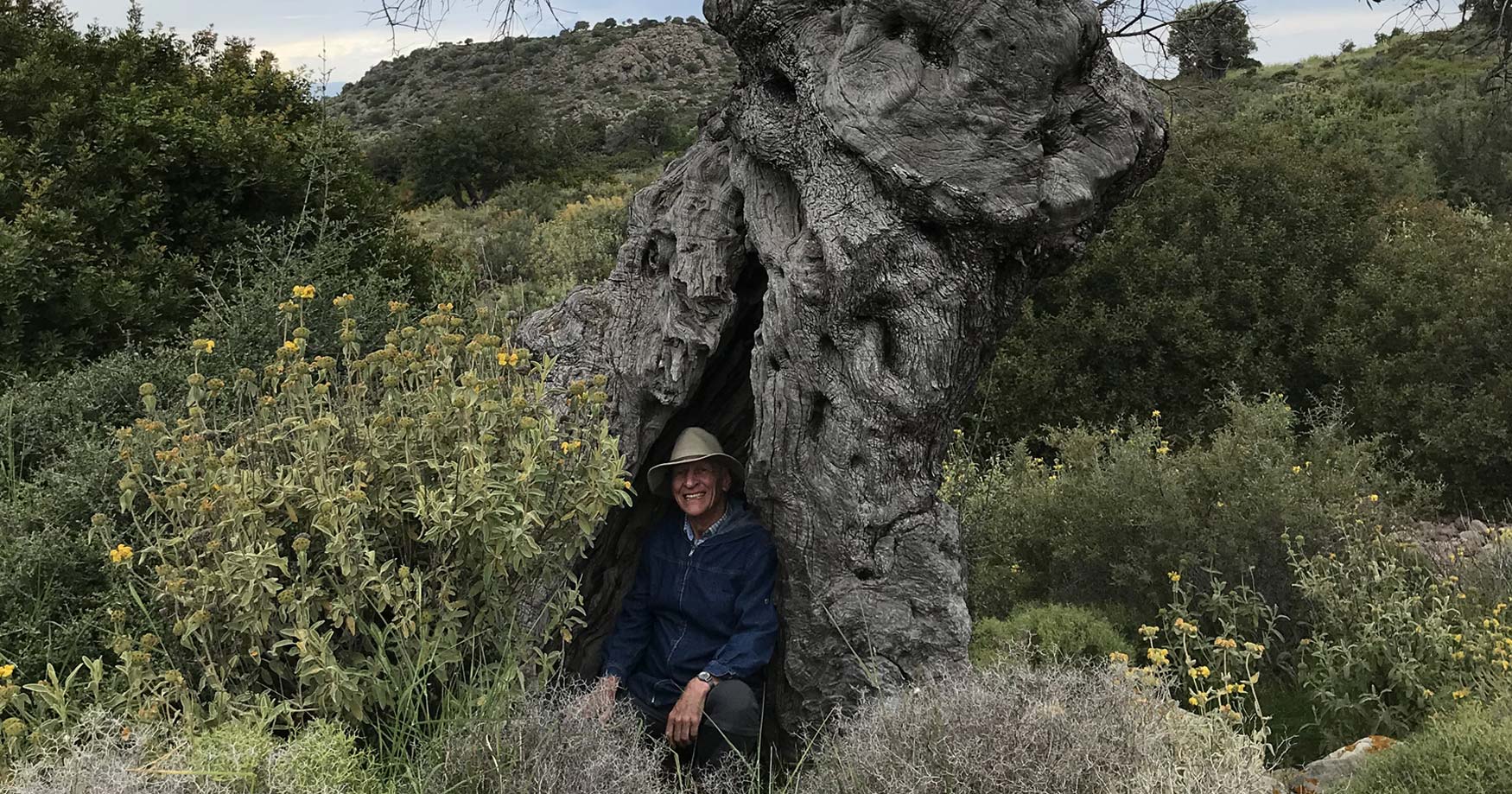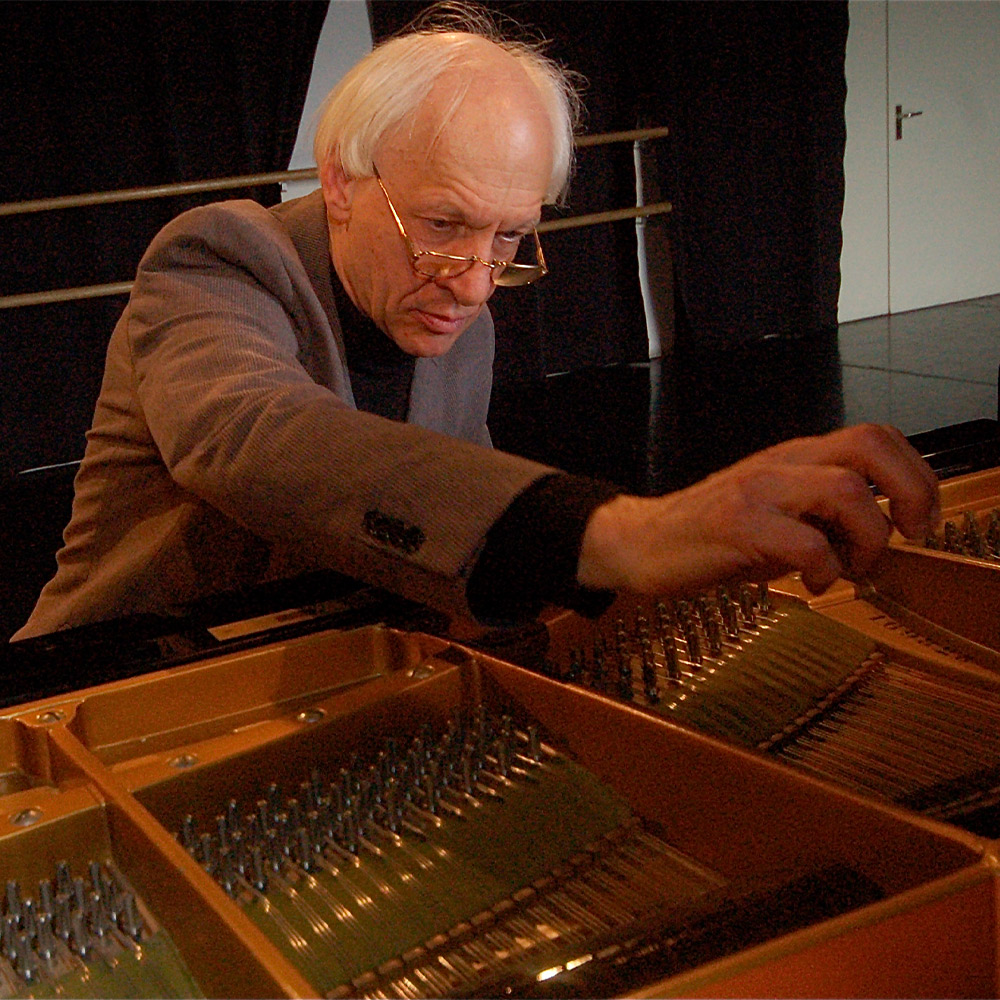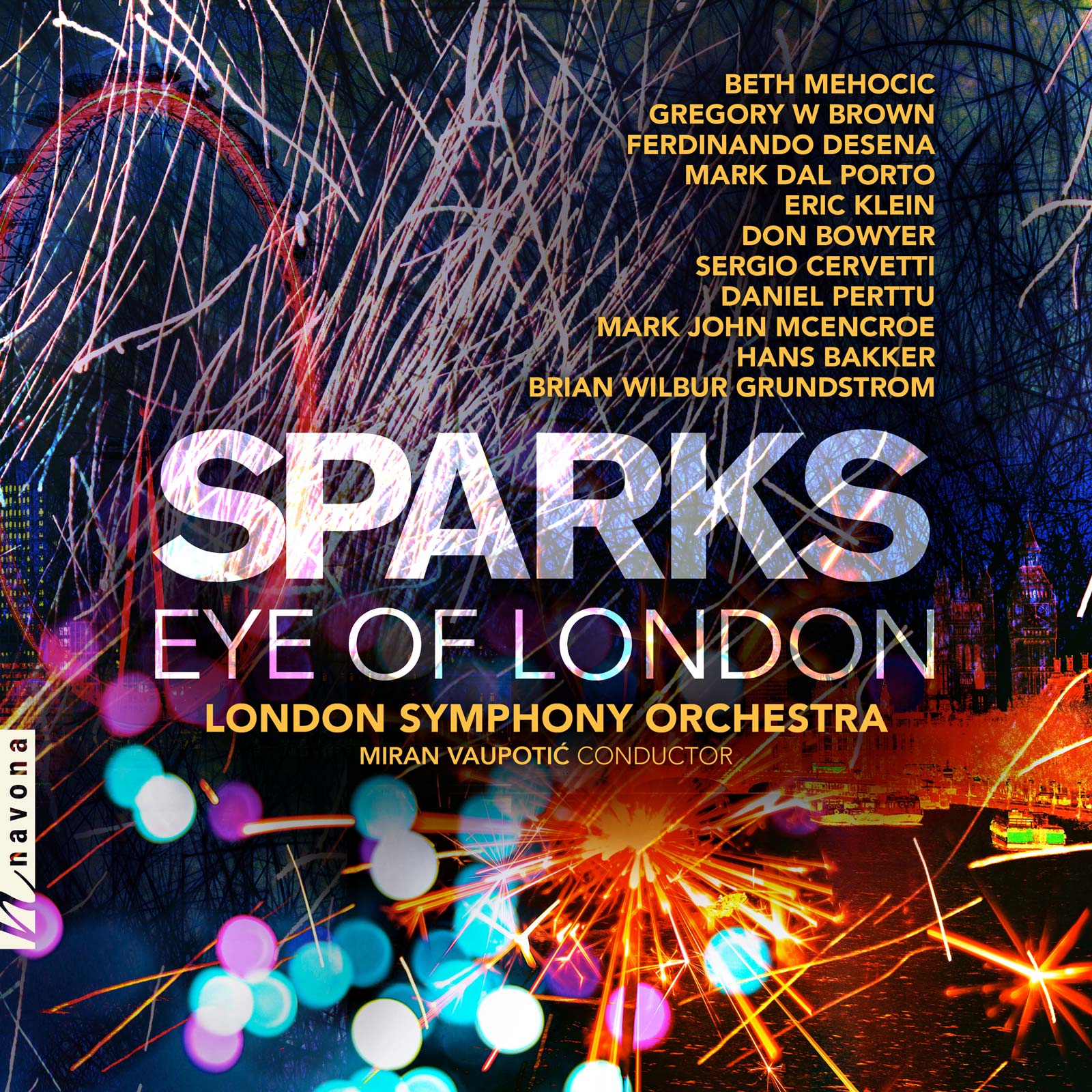
Navona Records presents SPARKS: EYE OF LONDON, an assembly of original fanfares performed by the London Symphony Orchestra. Drawing from the compositional strengths of today’s composers, the orchestra navigates chaos and order, isolation, and ascension towards triumph through passionate orchestral writing reminiscent of the fire that burns within us. Featured on this album is composer Hans Bakker and his piece Ananke.
Today, Hans is our featured artist on “The Inside Story,” a blog series exploring the inner workings and personalities of our composers and performers. Read on to learn about his passion for chess, and his growing interest in classical Chinese music…
What inspires you to write and/or perform?
Around my 50th I came into contact with the ethical-philosophical works of the German writer and painter Josef Anton Schneiderfranken (1876-1943), also known as Bô Yin Râ. I was also affected by his painting Das klingende Licht (The Sounding Light). It touched me deeply and that became — as if a source welled up — an inner urge to compose music, the source of my music started to flow.
If you could collaborate with anyone, who would it be?
I am happy to work with cellist Annette Scholten, pioneer in the development of the lame sonore, and her pianist Nanke Flach. Five works are now dedicated to them, including the trio Spark and recently the work in progress Visions of Peace for lame sonore and organ. I am also very happy to collaborate with pianist, composer, conductor, improviser, and professor Henry Kelder and his Keuris Ensemble. In the future I would like to continue working with the young organ virtuoso Maarten Wilmink and piano virtuoso Rangel Silaev. I am sure the artistry of these players will evoke a joyful experience for the listener.
Do you have any specific hopes about what this album will mean to listeners?
Leonard Bernstein said: “Music can name the unnameable and communicate the unknowable.” In that sense, I hope this album can serve as a mnemonic for the receptive listener, but first of all it wants to be enjoyed!
How have your influences changed as you grow as a musician?
My growing process as a composer never stops, but evolves along with the music genres, instruments, instrumentalists, and ensembles for which I write, while on the other side I expose myself to many useful influences regarding the given subject matter, for example classical Chinese music. One of my last pieces is the quintet, Foshan from Afar for flute, pipa, erhu, viola, and cello.
What are your other passions besides music?
To charge the battery, I often go for a walk with my wife in the province of South Limburg (NL) in the hilly Euregion between Aachen (D) and Maastricht (NL), in fact the foothills of the Eiffel and the Belgian Ardennes. Or sometimes on one of the Greek islands. Almost every Friday night I play chess at my 100 year old club, and in between on the computer, and read the newspapers in one of the old city cafes while enjoying a beer or wine.
Who are your musical mentors?
Besides Bach of course, the musical language of Janáček, Skriabin, Prokofief, and Ives is always a source of inspiration for me. But also jazz, especially boogie-woogie, original folk music from the Balkans, and recently classical Chinese music.

After he finished his studies piano, church organ, and choral conducting at the Dutch Institute for Church Music in Utrecht, Hans Bakker (b. 1945) worked as a teacher at two music schools in the Netherlands. He also conducted two choirs and was active in the improvisational music scene. His career in music was followed by the study of Sanskrit. After obtaining his master's degree at the University of Amsterdam, he returned to music, becoming completely occupied by teaching at Globe Center for Art and Culture in the city of Hilversum.

